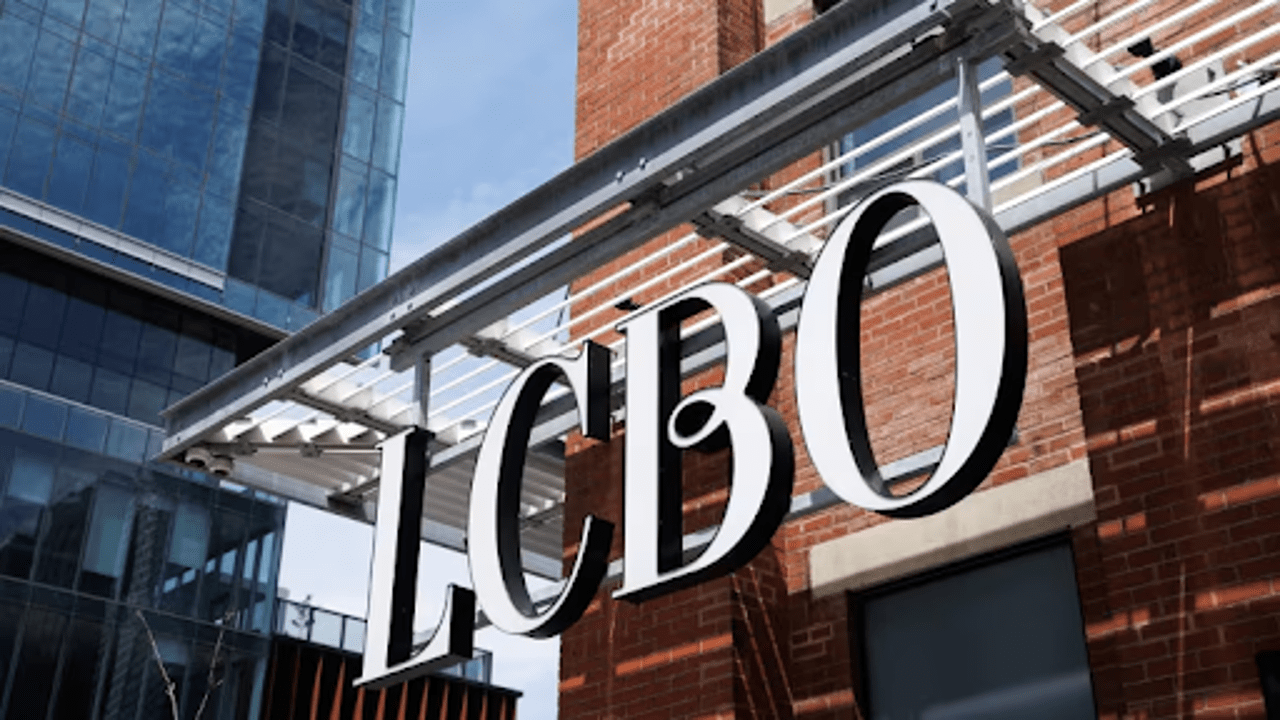
On July 4, 2024, an LCBO sign marks the day thousands of Ontario liquor store employees went on strike. The walkout happened after contract talks between the workers' union and the LCBO fell apart. (Photo by Alex Lupul/CBC)
More than 9,000 employees of Ontario's liquor stores have gone on strike after negotiations between their union and the LCBO failed. The Ontario Public Service Employees Union (OPSEU), representing these workers, blamed Premier Doug Ford for the breakdown in talks. The union's strike deadline was set for 12:01 a.m. on Friday.
Colleen MacLeod, chair of OPSEU's liquor board employees division bargaining team, said, "LCBO workers are ready to make history," declaring that Premier Ford's summer would be "dry."
OPSEU president J.P. Hornick stated that the workers are seeking wage increases, more full-time jobs, and assurances in their collective agreement to protect existing jobs and the future of the LCBO. The union highlighted that 70% of LCBO's workforce is made up of part-time positions.
When asked about the potential duration of the strike, Hornick mentioned, "We have a very healthy strike fund... and we can weather a strike as long as necessary."
The LCBO announced on its website that the strike means all retail locations will be closed for two weeks. They assured that if an agreement is reached within this period, stores would reopen promptly. During the strike, the LCBO's website and mobile app will continue to accept orders for free home delivery.
If the strike extends beyond two weeks, the LCBO plans to open 32 stores three days a week with limited hours.
The LCBO urged the union to return to the bargaining table, stating that the union's leadership was striking primarily over the government's decision to allow ready-to-drink (RTD) beverages to be sold in convenience and grocery stores.
Ontario Finance Minister Peter Bethlenfalvy's office expressed disappointment that the union walked away from negotiations before the strike deadline. The office urged OPSEU to return to the table to prioritize Ontario consumers and producers.
At the news conference, MacLeod criticized Premier Ford, accusing him of favouring wealthy friends and privatizing alcohol sales, which could result in significant job losses and reduced public revenues. She invited Ford to join the bargaining talks to make a fair offer and avoid the strike.
Ontario NDP Leader Marit Stiles said the provincial government should have done more to prevent the strike, emphasizing that nobody wants it, including the workers and the consumers.
This strike is the first in the history of the provincial Crown corporation and will impact the availability of certain types of alcohol, especially wine and spirits. The LCBO, a major retailer and wholesaler of wine, beer, and spirits in Ontario, operates more than 680 retail stores, and 389 convenience outlets, and serves 18,000 restaurant and bar wholesale customers.















